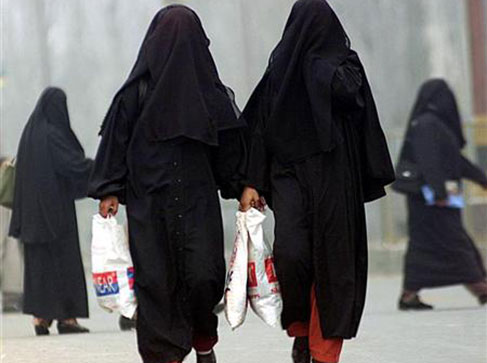UK’s ‘integration’ problem and Muslim women
From time to time in the UK, the subject of integration rears its head and it is almost certain that the reports on the subject will be accompanied by photographs of fully veiled Muslim women.
It happened this way when the then Prime Minister, David Cameron, made comments last year suggesting Muslim women were not integrating into British society and should be given English lessons.
It happened again with the Casey Review, released in December, when British media talked about how many Muslims were not learning English leaving them unable to get jobs.
In both the cases, women in particular were singled out as being under the influence of a patriarchal society which was keeping them subdued.
This made me wonder which women are being studied because the picture painted does not match up with women I know about here in the UK, or indeed, in Pakistan.
The image I am left with is of the poor Muslim woman who appears to be a quiet woman with limited grasp of English who stays in the house looking after home and family.
She mixes with other family members or fellow worshippers at her mosque but has no contact with anyone from the wider society. When she does venture out, she is veiled and has no interaction with anyone beyond that necessary for whatever business had led her out.
There’s just one problem with this picture; it doesn’t match up with any Muslim woman I can think of.
My mother’s generation may once have been closer to being considered a woman of this sort – except they didn’t let a strange language in an alien country hold them back, and neither did the men in their lives hold them back.
When my mum first came to Britain from Pakistan my dad told her as he would be at work she would have to keep herself occupied.
He showed her bus routes to reach family members and left her to it. This way my mum became familiar with travelling by herself and later on with her young children.
She wouldn’t stop at just paying a visit to a cousin either and would often go out with that cousin to pass the day. This helped her to become used to speaking English with native English speakers and led to her having friends among neighbours and other parents.
She also worked and passed her driving test down the years and even now encourages girls or even older women to learn to drive so they can move about with independence and don’t have to rely on and tie up male relatives. My mum’s fellow Muslim friends and female relatives were similar to her and I can only think of one who didn’t speak English – although she never let this stop her from going out and about and interacting with different people!
As I look at the next generation of girls I see a slightly different picture as they have grown up to become educated in the British system and have gone on to work in many different lines. Their daughters are following a similar path as they go out in the world. I know female doctors, scientists, teachers, architects, lawyers; I also see mothers who have decided not to go out to work and instead stay at home and look after their children.
All of these women speak fluent English, and often another European language as well as their ancestral mother tongue.
They mix with non-Muslims and exchange thoughts and ideas with them. In fact they often make an effort by holding interfaith and charity fundraising events which help them to be productive members of their community.
As devoted Muslims they understand this is something Islam advocates they do whether they are male or female and so they participate to make their communities better.
My mum’s generation only had the difference of not being born and educated in the UK; other than that they were no more a “poor, subjugated woman” than the next generations are.
I do understand that in some places there are examples of women who are facing restrictions and I hope they can escape this because a lack of fluent English or the desire to stay at home and bring up children is in no way a barrier to their making a positive contribution to the wider society.

